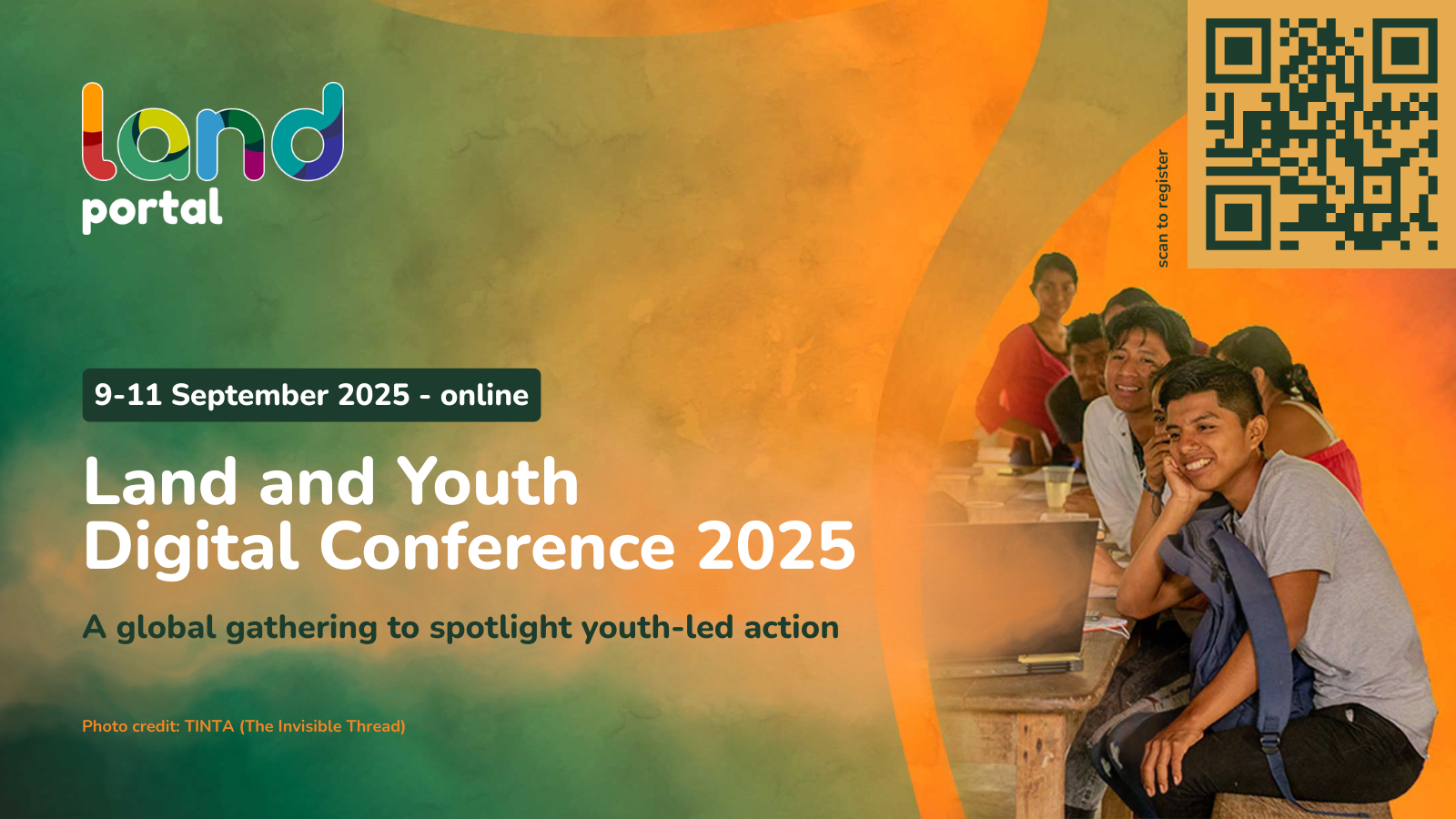September 16, 2025
By Claire Biason,
Coalitions & Engagement Program Manager
“Youth it or lose it”* is a great summary of the three-day Land and Youth Digital Conference that took place from September 9th to the 11th. The global event was co-organized by Land Portal, Youth Initiative for Land in Africa (YILAA), Global Alliance of Territorial Communities (GATC), Arab Youth Center (AYC), Espaço Feminista, the Asian NGO Coalition for Agrarian Reform and Rural Development (ANGOC), Conexión LA, and TINTA. This online conference aimed to amplify youth voices in land and climate change governance. It brought together over 800 participants from all over the world.
Youth fully took the lead in the conference and displayed how they are leading the charge for land rights and climate justice. Youth organizations co-organized eight sessions on various topics and most speakers were young activists. It was so refreshing to see them put front and center, and listen to their diverse experiences: from pastoralists in Mongolia to Indigenous groups from Panama. All sessions were available in multiple languages, making this a truly global, inclusive and inspiring event.
Despite the variety of cultures and regions, a profound attachment to land was clearly apparent. Land is about identity, dignity, justice. It is our past, future and present. In the words of Amanda Caroline Martins of the Brazilian Quilombola Youth Commission, “for us, land is not just a place where we have our crops, it’s where our roots are buried, where we live, where our wisdom is, where our dreams are formed. The Quilombola youth builds their identity from their direct relationship with the land and territory. Our land teaches us all these values: collectivity, respect, care and resistance.”
There were many commonalities in challenges as well: exclusion from decision-making spaces and limited access to land and resources, gender inequality, criminalization, the effects of climate change, and more.
The conference highlighted the disconnection between youth aspirations and reality, and how it affects our ability, as a society, to reach a more sustainable and fairer world.
How do we move from there?
Key takeaways from various sessions are that youth have to be innovative, build partnerships and consortiums, promote greater intergenerational dialogues and support, and advocate for inclusive policies and greater transparency to achieve their meaningful participation and recognition.
Wonderful examples already exist. Some are using digital tools to make traditional knowledge more visible, or document land use and propose locally driven resilience solutions. Others are using drones in fire monitoring centers to help with resource management. In many Indigenous territories facing encroachment by industries, women and youth are leading the charge and playing a key role in resistance.
All over the world, initiatives to build capacity and coalitions are taking place. The Mesoamerican Leadership School was created as an itinerant school, going from one country to another to build a space for dialogue, discernment, and construction of knowledge for generational change within community forestry organizations and native peoples. At the global level, youth have organized themselves in caucuses and platforms to have a stronger voice (such as the UNCCD Youth Caucus or the International Indigenous Youth Forum on Climate Change). For more details on these inspiring initiatives, watch the replays here.
As we all prepare for COP30, it is critical to enable their presence at the negotiating table and to collectively reimagine ways to build the future we aspire to. It is our shared responsibility to support them as the architects of change they truly are.
* Even though this wasn’t communicated, this relates to an initiative led by Trobenbos.
